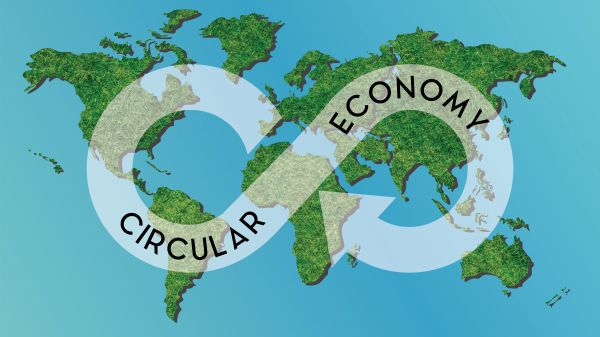Circular Economy

A circular economy is a systemic approach to economic development designed to benefit businesses, society, and the environment. In contrast to a ‘take-make-waste’ linear model, a circular economy is regenerative by design and aims to gradually decouple growth from the consumption of finite resources.
The Ellen MacArthur Foundation is one of the most prominent and well-respected organizations working on the circular economy, and they provide several resources for educators and learners to engage with. For many of us, the circular economy is a new concept, one that might sound complicated to understand. In fact, the concept is quite simple, based around three primary tenants: designing out waste and pollution, keeping products and materials in use, and regenerating natural systems. For environmental educators, it’s a concept that we can use to educate about how human manufacturing, design, and consumption link to natural systems, and how we can reduce our overall footprint. The goal of a circular economy is not only to eliminate waste, but to contribute back to our natural systems through renewable, sustainable solutions. This interactive website walks learners through the concept of the circular economy, starting the time of the Industrial Revolution.
Guidelines: Instructional soundness
Recently, the Eco-Schools program piloted a new curriculum framework for education on circular economy concepts, including teacher training. Using the Eco-Schools seven step framework of project-based learning, this pilot will hopefully extend throughout the entire Eco-Schools network. Pramod Sharma, FEE’s Senior Director of Education, will be leading a webinar in summer 2020 to provide an overview of circular economy concepts, with a focus on educational opportunities.
Guidelines: Depth, Instructional soundness



